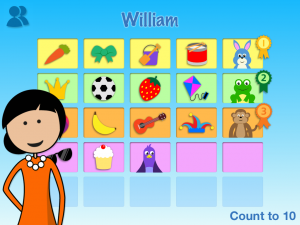Does speaking another language make you sexy?
The other day I discovered this article online. I already knew that Bradley Cooper spoke French, but was pretty happy when I realised that I could also listen to Johnny Depp, Ben Affleck and Colin Firth speaking various other languages too (French, Spanish and Italian, respectively). Being Grazia, the article is aimed at a female audience and only features male actors, but there are many famous women who also speak languages – Mila Kunis (Russian), Gwyneth Paltrow (Spanish), Natalie Portman (Hebrew) and Shakira (everything), among many others.
Here’s Bradley in action. I don’t speak French, unfortunately, so I have no idea what he’s saying, but it certainly sounds pretty good.
It’s easy to assume that movie and pop stars only speak English, because we only ever see them speak that language at the cinema or on TV. And let’s be honest, who hasn’t assumed at some point that because they’re rich and beautiful, they’re also lazy and probably not prepared to make the effort? As a result, we tend to be very surprised and make a big deal of it when we realise they do speak another language – even though, just like the rest of us, they went to school, go on holiday, have in-laws from another country to impress and sometimes may even need another language for work. So why is it so surprising?
Now – go to YouTube, search for ‘Bradley Cooper French’ and read some of the captions. Many of them say something along the lines of, ‘As if he couldn’t get any hotter…’ or ‘Bradley Cooper just keeps getting sexier!’ Which made me think – does speaking another language really make us sexy? And if so, surely this would be the perfect argument to encourage young people to keep going with languages at school? Never mind that they can get a better job, earn more, travel the world – if we could tell them it’ll make them more attractive to that girl/boy they fancy, maybe they’d be more interested.
 But of course not all men are Bradley Cooper or Johnny Depp (more’s the pity). So I have to wonder – is it the language that’s sexy, or the person speaking it? If Bradley Cooper were just Bradley from next door, would we be so impressed? I’m not sure that we would.
But of course not all men are Bradley Cooper or Johnny Depp (more’s the pity). So I have to wonder – is it the language that’s sexy, or the person speaking it? If Bradley Cooper were just Bradley from next door, would we be so impressed? I’m not sure that we would.
And also, why doesn’t this apply to all languages? If my experience of watching The Big Bang Theory is anything to go by, guys speaking Klingon tend not to have the same effect on women (for the most part – I know to some ladies it’s very attractive).
I’d love to hear what you think about this. Do you like someone more if they speak another language? Or is it just a nice bonus, which only applies to someone you already fancy? And will you be learning some French to impress your partner this Valentine’s Day? Let us know in the comments below 🙂
Liz
EuroTalk’s Top 10 Tips for Learning a Language in 2014 [Infographic]
Happy New Year! As life begins to return to normal, it’s time to get going on our New Year’s Resolutions (assuming we haven’t broken them already…) Many people will be taking the opportunity to learn a language, so we’ve put together this handy infographic with our top 10 tips to keep you motivated. Enjoy!
If you’ve enjoyed our infographic, please share it with others using one of the options below. We’d love to hear which languages you’re learning too, and how it’s going, so do let us know in the comments.
Read more about this in our recent blog post, Learning a Language – our top 10 tips.
Embed This Image On Your Site (copy code below):
EuroTalk: a look back at 2013
It’s been another busy year at EuroTalk, with new products, new languages… and a new puppy. Throw in a royal encounter and a cake that looks like a Dalek, and you’ve got the makings of an interesting twelve months.
Languages
In June, we launched our new app for iPhone and iPod touch, uTalk. This had been in development for a long time, and we were really proud and excited to be able to share it with the world. It’s got more content and more activities, and it’s free to download and start learning the essential words you need to get by in 60 languages. We’ve been adding more languages regularly since the app was launched, and will continue to do so over the coming months. So if we haven’t yet got the language you need, don’t worry – we soon will.
And that’s not all. Last month, we added Lao, the official language of Laos and also spoken in the north east of Thailand, to our range with the release of Talk Now, our beginner program for PC and Mac. Lao has about 15 million speakers worldwide, and is a language we’ve been wanting to offer for some time now. There are more new languages on the way in 2014, so watch this space…
Maths
This year also saw the launch of part 2 of our second maths app, Maths, age 4-6, and two new practice apps – Count to 10 and Count to 20. We also released a version of Maths age 3-5, for schools, so teachers can use the app in the classroom.
Malawi
We’ve been working in Malawi now for several years, as part of our mission to ensure one billion primary age children reach their full potential in numeracy, reading and English. This year, Dr Nicola Pitchford from the University of Nottingham conducted an evaluation at Biwi Primary School in Malawi, to measure how effective our maths apps are for the children’s learning, compared to other teaching methods, including other apps. The preliminary results show that not only did the group using our apps perform significantly better than the other groups, but in fact they tripled their maths knowledge in just eight weeks. This is really exciting and encouraging, and we hope now to scale up the project in Malawi to reach more children, in more schools.
Junior Language Challenge
2013 saw the return of the JLC, after a year off in 2012. Our annual language learning competition for primary age children across the UK is always very popular, and this year was no exception. We were joined at the final by Martha Payne of NeverSeconds, who at just 10 years old, has raised over £140,000 for Mary’s Meals, a charity providing school dinners to children in Malawi. Martha, with her dad and her sister, was our special guest and handed out the prizes to our finalists, including the JLC Champion for 2013, Ella Whittingham from West Bridgford, Nottingham.

Martha Payne with JLC Champion Ella Whittingham, runners-up Morgan Fry and Tudor Mendel-Idowu, and EuroTalk Chairman Richard Howeson
A Royal Visit
In October, Steve was honoured by a visit from Her Royal Highness Princess Maha Chakri Sirindhorn of Thailand, while at an exhibition in Bangkok. The Princess came to have a look at the EuroTalk stand, and later Steve presented her with a gift on behalf of the company. He had to be instructed on the correct way to bow, and fortunately he got it right!
New arrivals
This year, we’ve said a sad goodbye to Glyn, Tom and Hanna, but welcomed Safia, Seb and Pablo. We’ve also been lucky to have Lorena with us from Germany for a few months; you may have enjoyed some of her blog posts! And in August we welcomed Molly the puppy, who caused a certain amount of mayhem, but was very easily forgiven because she’s so cute.
Fancy dress fun
We entered into the ‘spirit’ of Halloween by getting dressed up for the occasion. With everything from vampires to skeletons, pumpkins to werewolves, we were quite a sight to behold. Although some of us were scarier than others…
Lots of cake
We’ve always enjoyed a bit of cake here at EuroTalk, but this year we’ve been thoroughly spoilt, with keen bakers Safia and Alex (but mostly Safia) providing us with masterpieces like this amazing Dalek cake. (It took us three days to eat, but it was totally worth it.)
And so the year has come to an end in style. Thanks as always for reading our blog, and to our guest bloggers who’ve been in touch over the last year. Please do contact us if you have something you’d like to share!
Happy New Year, everyone – see you in 2014!
Languages for the future: the top ten
A recent report by the British Council has laid out the ten most important languages for the UK’s future, in political, economic, educational and cultural terms.
According to the report, the ten most important languages, in order, are: Spanish, Arabic, French, Mandarin, German, Portuguese, Italian, Russian, Turkish and Japanese. I read this list with a certain amount of smugness that I speak Spanish, German and French – although my knowledge of key languages such as Mandarin and Arabic is, sadly, next to nothing. So feel free to give yourself a pat on the back if you can speak, or are learning, one of those ten languages.
 Unfortunately, the report also indicated that the numbers of UK residents actually learning these languages, especially the ones not taught in schools, are very low. On a positive note, around 15% of people can hold a conversation in French. However, only 6% are able to do so in German, 4% in Spanish and 2% in Italian. But the figures for the other languages are as low as 1%.
Unfortunately, the report also indicated that the numbers of UK residents actually learning these languages, especially the ones not taught in schools, are very low. On a positive note, around 15% of people can hold a conversation in French. However, only 6% are able to do so in German, 4% in Spanish and 2% in Italian. But the figures for the other languages are as low as 1%.
Perhaps one of the problems is that Mandarin, Japanese, Russian and Arabic all require learners to pick up another script. This might seem daunting, but is actually really exciting. Just being able to read simple words in another script gives you a huge sense of achievement, and you’d be surprised how quickly you can begin to decipher words from what previously looked like squiggles.
Hopefully if you’re reading our blog you already know the importance of language-learning, and that picking up a new language is an adventure rather than a chore! But maybe this list will give you an idea about which language you fancy picking up – maybe it’s time to start reviving your A-level French? Or be brave and give Arabic a try? Personally, I’m working on adding Italian to my list, which is proving interesting as I lapse back into Spanish as soon as I don’t know a word!
The report recommends a much greater focus on languages in schools and that businesses should invest in language training for languages that are useful in their industry. But don’t worry if your school days are behind you – it’s never too late to learn a new language!
Alex
Learning a language – our top 10 tips
We all know learning a language is a great idea, but sometimes it can be hard to get motivated or to find the right way to learn. Here are our top 10 tips to help you get started.
1. Tell everyone you know that you’re learning a language.
This way, when you’re tempted to give up or chicken out, you might think twice knowing they’re all expecting great things from you. I call this ‘the biscuit tin method’; if you tell everyone you’re giving up biscuits, you’re a lot less likely to cave, just in case you get caught with your hand in the tin. It worked for me – I haven’t had a biscuit in years. Well, not out of the tin, anyway.
2. Start with the basics.
We know you might be learning French for an important business meeting, but you may not get a chance to show off the fact that you know how to say ‘Sales in the retail sector are growing steadily’, if you’ve not yet learnt how to say ‘hello’.
3. Don’t be scared to talk to people.
You might get it wrong sometimes, but if you don’t try, you’ll never get it right, either. In the immortal words of Richard Branson, ‘You don’t learn to walk by following rules. You learn by doing, and falling over.’ Learning on paper is all well and good, but talking to people and making mistakes is the best way to pick new things up. And you’re more likely to get it right next time, because you’ll remember the situation you were in as well as just the word or phrase.
(This works both ways, actually – if you know someone who’s learning your language and they say something incorrectly, let them know about it. Not in a mean way, but in a helpful, constructive way so they understand where they went wrong and can get it right next time. And you’ll probably find it helps you understand your own language better, too.)
4. Don’t worry too much about grammar to begin with.
Yes, it’s important, but if you’re making the effort to talk to someone in their own language, as long as you can make yourself understood, they probably won’t mind if you get your verb ending wrong. So get your basic vocab and some stock phrases down first, then you can start learning some basic grammar to help you create your own sentences and take your study of the language further.
5. Make yourself some flashcards.
Or use a computer program or mobile app. (We hear uTalk‘s quite good…) Introducing an element of competition can be a good motivator, so see if you can team up with someone else who’s learning the same language and test each other, or compare your online scores. If you don’t have time to sit down and make flashcards, you could try labelling things around your house or workspace, so you see them all the time and the vocabulary will start to sink in without you even realising.
6. Find someone to talk to.
If you’re learning for a trip, then this is easy; there’ll be loads of people to chat to when you get there. But if you’re just learning for fun, try and find someone to practise with. A lot of the world is so multicultural now that it’s possible to find a native speaker of just about any language living just down the road. But even if you can’t, there are loads of websites where you can find someone to Skype with, even if they live on the other side of the world. For instance, italki is free and lets you connect with language teachers and native speakers around the world. The best part is, you might make a new friend, which can only mean one thing – cheap holidays…
7. Read, watch and listen to anything you can find.
If you’re at home, this could be newspapers, books, movies, music or websites. Or if you’re travelling, look at signs, menus or product packaging. If there are words you don’t understand, make a note of them and look them up later, or ask someone. You’ll probably be surprised how much you can piece together on your own, and that’s a great confidence boost.
8. Go to the country.
Even if you’re just learning for fun, there’s no better way to learn a language than to immerse yourself in it. Plan a holiday – if nothing else it’ll give you something to look forward to and will motivate you to keep learning. Visiting a country also means that you’ll learn the ‘real’ way of saying things – you might have learnt the correct way but when you arrive, you’ll find nobody actually talks that way.
9. Don’t give up.
It’s not easy to learn a language, but we all have the ability. There really is no such thing as someone who’s bad at languages. So if you’re finding it difficult, hang in there; it’ll be worth it in the end. And keep practising, because you may find all that vocab you spent ages learning will drift away if you don’t. Which seems like a shame.
10. Enjoy it.
We all remember our school days, studying French verbs and monotonously repeating meaningless sentences about your cats on tables. But learning a language can open up a world full of opportunities, new friends and different ways of seeing the world around us. So why make it a chore? Be creative – everyone’s different so do whatever works for you. You could try singing, for example. Or blogging about your learning journey. Try different things and see what works. And then tell us about it – we’d love to hear from you 🙂
Good luck!
Liz (with contributions from Alex and Nat)
You can now read and share this post in a handy infographic!








